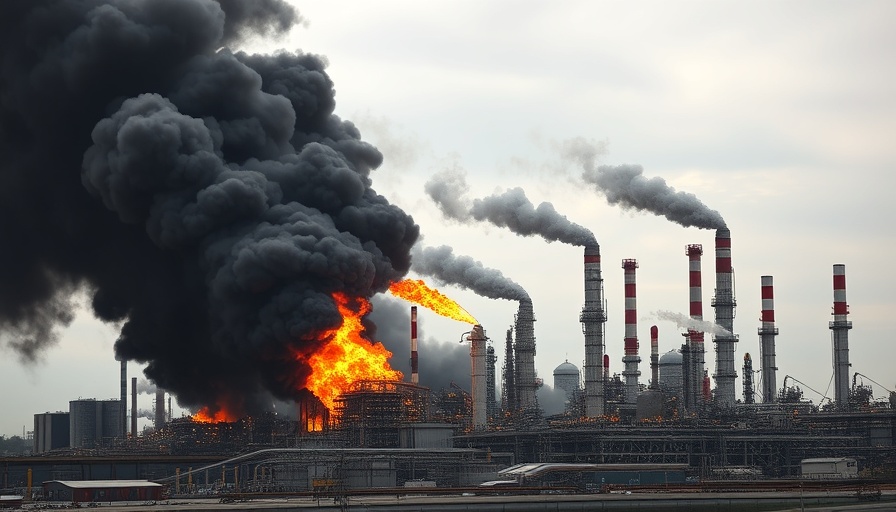
Fire Breaks Out at Marathon Petroleum: What Happened?
On Saturday, a fire erupted at the Marathon Petroleum refinery in Texas City, disrupting operations and prompting emergency measures that included a shelter-in-place directive. Local authorities were quick to respond, and the Texas City Office of Emergency Management reported the incident shortly after 12:25 p.m. By 1:30 p.m., the fire was declared under control, with no injuries reported, according to a statement issued by Marathon. This incident not only raises safety concerns but also sheds light on the refinery’s operational protocols.
Understanding the Impact of Refinery Fires
Fires at oil refineries can have severe consequences. Beyond immediate safety hazards, they can affect air quality and lead to significant financial losses both for the company and the surrounding community. In Texas City, home to numerous refineries, the risk of such incidents is a constant concern. Residents often find themselves on high alert, as the complex dynamics of chemical processing pose ongoing risks. The swift response from local firefighters and emergency services is crucial in minimizing the impact of such emergencies.
The Role of Air Quality Monitoring
During the recent fire, air-monitoring measures were implemented to assess the situation and ensure public safety. This practice is standard during refinery emergencies and serves a dual purpose: to protect residents and to gauge the extent of any environmental hazards resulting from the incident. Fortunately, the rapid control of the fire suggests that potentially dangerous emissions were kept to a minimum, but ongoing air quality assessments remain essential following such incidents.
Community Response: Navigating Safety and Fear
Community response to refinery incidents often involves a mix of relief and concern. While the immediate danger may be over—as shown by the quick resolution of the fire—many residents are left questioning what could have happened had the situation escalated. The shelter-in-place order issued signifies a broader community engagement regarding safety protocols and emergency response preparedness. These incidents can stir fear and anxiety, urging residents to advocate for stricter safety measures and transparency from refinery operations.
The Future of Safety in Oil Refineries
In the aftermath of this recent incident at the Marathon Petroleum refinery, it becomes imperative to consider the future of safety in oil production facilities. Current trends indicate an increasing push for better regulation and enhanced safety measures within the industry. Lessons from past fires and accidents can catalyze improvements in technology and procedures designed to mitigate risks. The question remains: Will the industry respond adequately to meet the growing demand for safety reforms?
Conclusion: The Importance of Vigilance
As fires at oil refineries pose ongoing risks to both workers and communities, vigilance becomes critical. The Texas City incident serves as a reminder of the fragility of industrial safety and the importance of continuous assessment and improvement of safety practices. The local community needs to remain informed and involved in discussions around refinery operations. As residents seek assurance of their safety, strong community engagement with refinery leaders and local government can lay the groundwork for a safer industrial future.
Learn more about refinery safety and community responses to industrial incidents in Texas City. It's essential for residents to stay informed as local governance evolves to meet these challenges. Advocate for increased safety measures and transparency from local refineries.
 Add Element
Add Element  Add Row
Add Row 



Write A Comment